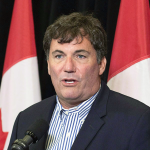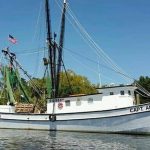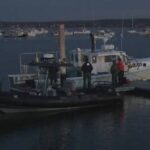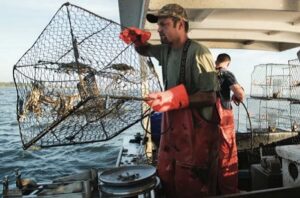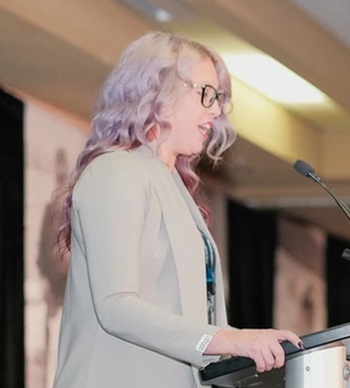 It’s good to know it’s there if needed, but neither Newfoundland and Labrador’s unionized fishery workers, nor the processors they sell to or work for, want to see the industry disrupted by organized labour strife. On Dec. 4, the provincial government made amendments to the Fishing Industry Collective Bargaining Act that will make it easier for the members of FFAW-Unifor, which represents both fish harvesters and plant workers, to take strike action, or for the members of the Association of Seafood Producers (ASP) to lock them out if they cannot agree on fish prices. The amendments were read for a third time in the House of Assembly, but Royal Assent has been deferred until the two sides indicate they wish to reclaim their constitutional rights to strike or lockout. more, >>CLICK TO READ<< 10:53
It’s good to know it’s there if needed, but neither Newfoundland and Labrador’s unionized fishery workers, nor the processors they sell to or work for, want to see the industry disrupted by organized labour strife. On Dec. 4, the provincial government made amendments to the Fishing Industry Collective Bargaining Act that will make it easier for the members of FFAW-Unifor, which represents both fish harvesters and plant workers, to take strike action, or for the members of the Association of Seafood Producers (ASP) to lock them out if they cannot agree on fish prices. The amendments were read for a third time in the House of Assembly, but Royal Assent has been deferred until the two sides indicate they wish to reclaim their constitutional rights to strike or lockout. more, >>CLICK TO READ<< 10:53Tag Archives: Fish processing
California’s Squid Fishery: The Largest in the U.S. and an Economic Powerhouse
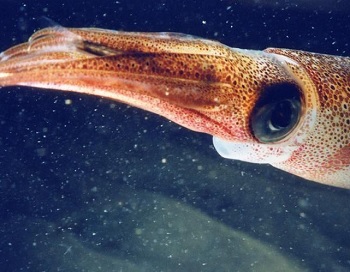 California holds a unique distinction in the United States as home to the largest squid fishery by both volume and revenue. While most Americans might think of squid as a side dish or appetizer at seafood restaurants, in California, market squid fishing has a deep-rooted history and serves as a significant contributor to the state’s commercial fishing economy. California’s market squid (Doryteuthis opalescens), commonly known as opalescent squid, not only drives revenue and jobs in the fishing industry but also exemplifies how sustainable practices are becoming integral to modern fisheries. From humble beginnings to MSC-certified status, California’s squid fishery is a fascinating example of how one invertebrate species has created waves in the fishing world. more, >>CLICK TO READ<< 15:21
California holds a unique distinction in the United States as home to the largest squid fishery by both volume and revenue. While most Americans might think of squid as a side dish or appetizer at seafood restaurants, in California, market squid fishing has a deep-rooted history and serves as a significant contributor to the state’s commercial fishing economy. California’s market squid (Doryteuthis opalescens), commonly known as opalescent squid, not only drives revenue and jobs in the fishing industry but also exemplifies how sustainable practices are becoming integral to modern fisheries. From humble beginnings to MSC-certified status, California’s squid fishery is a fascinating example of how one invertebrate species has created waves in the fishing world. more, >>CLICK TO READ<< 15:21
“Thar’s gold in them thar gills!” Why this Peoria fish company wants to come to Pekin
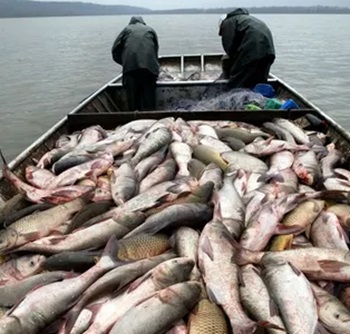 Many central Illinois residents see Asian carp as an invasive species and a hazard to public waterways. But a wholesale and retail fresh water fish processing company sees them as an opportunity and wants to set up a facility in Pekin. Vogel noted that commercial fishermen have been netting carp on the Illinois River for “quite a few years.” While those fishermen have always had access to carp processing plants, he believes Freshwater Solutions proposed Pekin facility can potentially operate on a larger scale. “It’s not just the Asian carp we’re targeting,” he said. “It’s all freshwater species in commercial fishing. What we’re trying to do is build an old industry anew right here in central Illinois.” more, >>click to read<< 08:06
Many central Illinois residents see Asian carp as an invasive species and a hazard to public waterways. But a wholesale and retail fresh water fish processing company sees them as an opportunity and wants to set up a facility in Pekin. Vogel noted that commercial fishermen have been netting carp on the Illinois River for “quite a few years.” While those fishermen have always had access to carp processing plants, he believes Freshwater Solutions proposed Pekin facility can potentially operate on a larger scale. “It’s not just the Asian carp we’re targeting,” he said. “It’s all freshwater species in commercial fishing. What we’re trying to do is build an old industry anew right here in central Illinois.” more, >>click to read<< 08:06
Peterhead firm given green light for fish processing factory expansion
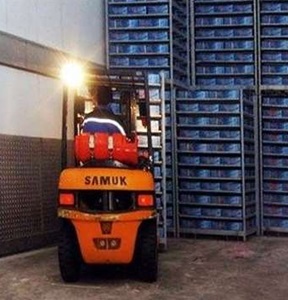 Northbay Pelagic has been given the green light to expand its Peterhead fish processing site that will help the firm hit new national fishing targets. Operation manager Scott McKenzie said the additional space was needed to meet the Scottish Government’s new landings obligation. Speaking at the Buchan area committee, Mr. McKenzie explained: “Scottish pelagic fleets this current year must land 30% of their catch in Scotland. Next year it will increase to 45 per cent and the year after it will be up to 55 per cent. Northbay Pelagic is one of the largest pelagic fish processors in the country. It currently processes around 25,000 tonnes of fish per year including mackerel and herring. – >>click to read<< 07:07
Northbay Pelagic has been given the green light to expand its Peterhead fish processing site that will help the firm hit new national fishing targets. Operation manager Scott McKenzie said the additional space was needed to meet the Scottish Government’s new landings obligation. Speaking at the Buchan area committee, Mr. McKenzie explained: “Scottish pelagic fleets this current year must land 30% of their catch in Scotland. Next year it will increase to 45 per cent and the year after it will be up to 55 per cent. Northbay Pelagic is one of the largest pelagic fish processors in the country. It currently processes around 25,000 tonnes of fish per year including mackerel and herring. – >>click to read<< 07:07
Trident’s new processing plant in Unalaska will be the largest in North America
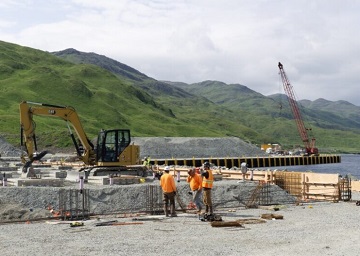 Trident Seafoods has begun building the first bunkhouses at its to-be processing plant in Unalaska’s Captains Bay, progressing on a timeline the seafood titan says would make it operational by 2027. The Aleutian Islands and Bering Sea region is home to some of the world’s most productive fishing grounds. It’s where most Alaska pollock comes from, the whitefish found in fish sticks and McDonald’s Filet-O-Fish sandwiches worldwide. And a lot of that fish is processed at the giant Trident Seafoods plant in Akutan. But aging infrastructure and decades of wear prompted the seafood company to plan a new facility. >click to read< 10:35
Trident Seafoods has begun building the first bunkhouses at its to-be processing plant in Unalaska’s Captains Bay, progressing on a timeline the seafood titan says would make it operational by 2027. The Aleutian Islands and Bering Sea region is home to some of the world’s most productive fishing grounds. It’s where most Alaska pollock comes from, the whitefish found in fish sticks and McDonald’s Filet-O-Fish sandwiches worldwide. And a lot of that fish is processed at the giant Trident Seafoods plant in Akutan. But aging infrastructure and decades of wear prompted the seafood company to plan a new facility. >click to read< 10:35
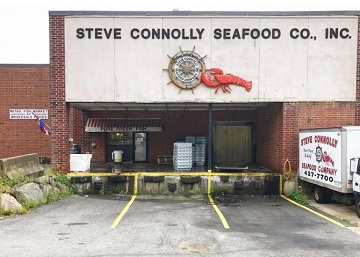
Steve Connolly Seafood Company has closed
Steve Connolly Seafood Company, one of the last major seafood processors in Gloucester, is ending its wholesale and retail operations on Jan. 1. The company has its waterfront retail facility at 431 Main St., and a corporate site in Boston, according to its website. The website says that within eight years of Steve Connolly founding the company, it became the nation’s leading full service fresh seafood house. In 1990, the U.S. Small Business Administration named Connolly and his company the Small Business Person of the Year for Massachusetts. >click to read< 09:27
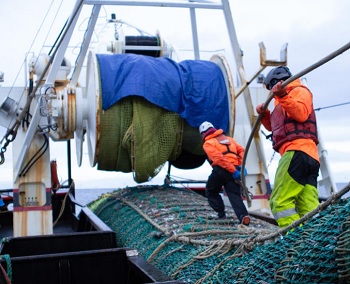
‘Everybody’s worst nightmare’: Bering Sea fishermen on edge after Coronavirus closes second processing plant
Now, fishermen and industry leaders are anxious that they might not have places to offload their catch, and that their plants might be the next to close down, said Dan Martin, who manages a fleet of nine pollock trawlers for a company called Evening Star Fisheries. “Any hiccups like this, you really have to reshuffle the deck and try to figure out, ‘Okay, what’s the next step?’” said Martin, a retired skipper. He called the shutdowns “everybody’s worst nightmare.” >click to read< 10:32
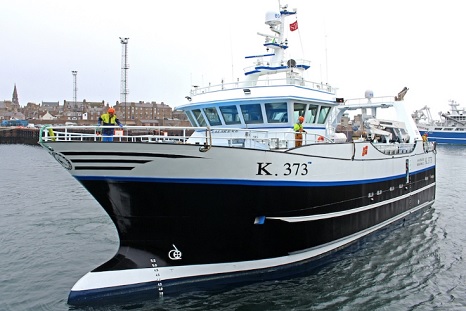
Lucky 13, and the Latest Fishfinding Tech
Delivered from its Danish builder to owners in Orkney, Aalskere is the third trawler for Iain Harcus with the same name and number – keeping to the Orkney preference for a registration number that adds up to 13., Iain Harcus has fished for 20 years with the 33.90 metre Aalskere that was acquired in 2000, built as Vandal, photo’s, >click to read< Aalskere’s wheelhouse has an uncluttered layout a single E Vejvad Hansen skipper’s chair at the centre 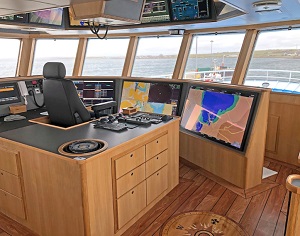 of Aalskere’s wheelhouse, facing a bank of 55-inch 4K monitors, supplemented by an overhead row of seven Neovo X24 monitors, plus six 19-inch screens at the aft wheelhouse trawl console. There are ten monitors altogether integrated into the Woodsons Quad view system, controlled using a trackball with a cursor that moves seamlessly from one screen to the next. Photo’s, >click to read< 15:46
of Aalskere’s wheelhouse, facing a bank of 55-inch 4K monitors, supplemented by an overhead row of seven Neovo X24 monitors, plus six 19-inch screens at the aft wheelhouse trawl console. There are ten monitors altogether integrated into the Woodsons Quad view system, controlled using a trackball with a cursor that moves seamlessly from one screen to the next. Photo’s, >click to read< 15:46
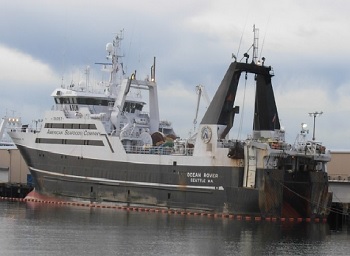
Crew of Alaska bound factory fishing trawler worries after company rejects more Coronavirus screening
American Seafoods will forgo additional COVID-19 screening of the Ocean Rover factory trawler, a move that has some crew worried and wanting more assurances the disease has not found its way onto the Alaska-bound vessel. American Seafoods has been buffeted in the past two weeks by test results from crews of three other vessels unloading frozen fish in Bellingham. Testing positive: 94 crew on the American Dynasty, four on the American Triumph and 21 on the Northern Jaeger, findings that rattled the North Pacific seafood industry, which is struggling to keep the virus off boats and shore-based plants as the busy summer harvest season approaches. >click to read< 18:48
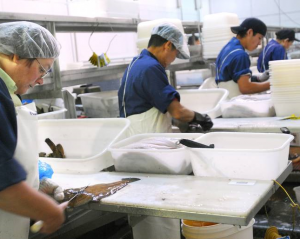
Port of Astoria: Twelve more workers test positive for Coronavirus at Bornstein Seafoods
Clatsop County reported Friday that 12 more workers at Bornstein Seafoods in Astoria have tested positive for the coronavirus, bringing the outbreak to 26. The county Public Health Department began testing workers at the seafood processor on May 2 after the company informed the county on May 1 that an employee had tested positive for the virus. Bornstein Seafoods has shut down two plants at the Port of Astoria in response to the outbreak and advised employees to self-isolate at home. The Bornstein Seafoods outbreak rippled across Astoria. >click to read< 09:25
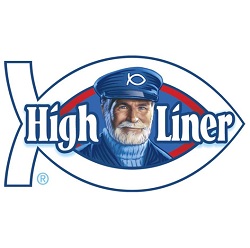
Coronavirus: High Liner Foods suspends production at New Hampshire plant
Nova Scotia-based frozen seafood producer High Liner Foods has temporarily suspended all production at its plant in Portsmouth, N.H., because of confirmed COVID-19 cases. The company will redirect some of its production to plants in Lunenburg, N.S., and Newport News, Va. In a news release, High Liner Foods said it will carry out deep cleaning, contact tracing and risk assessment in Portsmouth. “Our priority is the health and safety of our employees who are doing essential work supplying food to families across North America,” Rod Hepponstall, the company’s president and chief executive officer, said in a statement. >click to read< 12:26
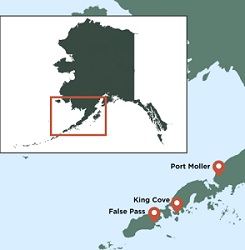
A new fish processor is buoying King Cove’s fishermen. But,,
King Cove has long been a company town. For decades, its fishermen were frustrated by Peter Pan Seafoods, Inc., the private company that runs King Cove’s own massive processing plant. Especially vexing were the limits: While another processor in the region was buying far more salmon, Peter Pan would only buy 35,000 pounds from each boat, each day, said A.J. Newman, a King Cove city council member who skippers the 58-foot Lady Lee Dawn.“It’s hard to watch your friends catch double what you caught,” said Newman. “Peter Pan had too many boats,,, >click to read< 08:44
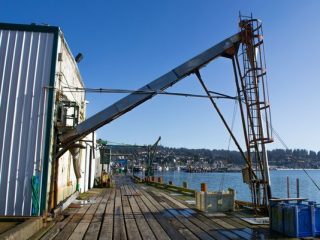
Trident Seafoods fined a third time for polluting Newport’s Yaquina Bay
Oregon environmental regulators have fined Trident Seafoods Corp. $43,200 for wastewater violations at its Newport surimi factory. It’s the third time since 2015 the state Department of Environmental Quality has fined the company for polluting Yaquina Bay. Seattle-based Trident Seafoods is the largest seafood company in the United States and among the largest in the world.
In Newport, the company holds a permit to discharge treated fish-processing wastewater into the bay from its factory, at 623 Yaquina Bay Boulevard, which processes fish into the imitation crab meat. >click to read<11:52
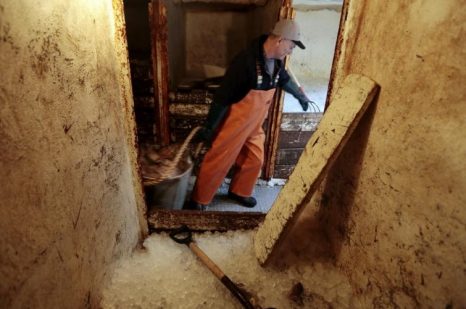
Don Cuddy: There’s profit for New Bedford in processing all of the fish
On September 21, New Bedford officially joined the Icelandic Ocean Cluster, a business incubator in Reykjavik, focused on fostering innovation in ocean-related industries. The cluster, which focuses on marine biotechnology, aims to demonstrate that the seafood industry can extract more value from its fisheries as part of this network. The bottom line is getting people to look at organic waste as a product that has value and not simply as waste. Mayor Jon Mitchell signed the agreement with Thor Sigfusson, the main man from Iceland, at a ceremony held at the Whaling Museum. click here to read the story 08:27
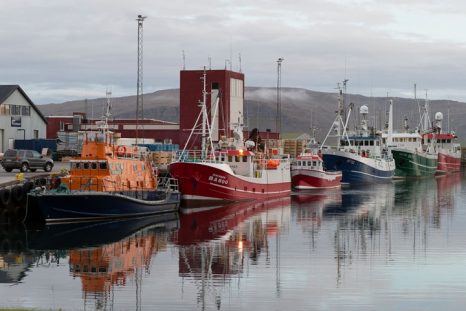
Shoreside Workers’ Wallets Affected by Fishermen’s Strike
Numerous workers in fish processing are out of a job, due the fishermen’s strike, which resumed December 14. A number of workers in Vestmannaeyjar islands are now registering as unemployed, mbl.is reports. The fishermen’s strike has extensive effects, both on jobs at sea and in fish processing, in addition to affecting Iceland’s position on fish markets. One after another, fish processing plants reduce their operations as they run out of fish. Employees are, thus, faced with uncertainty. Four out of six fish processing plants in Vestmannaeyjar had to halt processing due to a lack of fish before last weekend, and the rest will cease processing this week. Most plants in the West Fjords have run out of fish. Only catches from small fishing boats, not affected by the strike, can be processed, but not many of those are fishing these days. When fish is lacking, the law allows for employees to be taken off the payroll and be registered as unemployed without delay, mbl.is reports. According to RÚV, fish processing plants in the West Fjords have no plans to take their employees off the payroll, but without fish, no overtime or piecework is paid, thus, reducing the workers’ income. Link 14:30
Processing upgrades possible, but humans irreplaceable says analyst
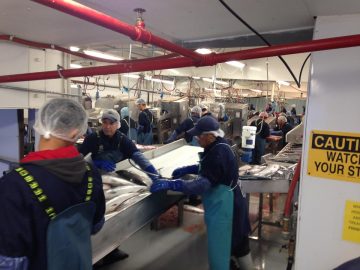 Processing the 20 to 40 million sockeye harvested in about a month each summer is no small feat. And while the Bristol Bay salmon fishery has come a long way from the hey-days of canneries, there are more improvements to come. Bergur Goumundsson has already seen his share of changes in fisheries. He grew up in a town of about 400 people north of the Arctic Circle. His father was a longline fisherman; his brother followed suit. Eventually, Goumundsson found his way into processing technology, and now works for the fisheries division at Morel, an international company that works in food processing. “My job is basically to analyze processes and come up with ideas that could increase the yield. To make more usable products out of the raw materials that you have,” he said. Audio, read the rest here 16:35
Processing the 20 to 40 million sockeye harvested in about a month each summer is no small feat. And while the Bristol Bay salmon fishery has come a long way from the hey-days of canneries, there are more improvements to come. Bergur Goumundsson has already seen his share of changes in fisheries. He grew up in a town of about 400 people north of the Arctic Circle. His father was a longline fisherman; his brother followed suit. Eventually, Goumundsson found his way into processing technology, and now works for the fisheries division at Morel, an international company that works in food processing. “My job is basically to analyze processes and come up with ideas that could increase the yield. To make more usable products out of the raw materials that you have,” he said. Audio, read the rest here 16:35
Nova Scotia Fish processing industry facing ‘imminent’ labour shortage
The Nova Scotia seafood processing industry expressed concerns Thursday with changes to the federal government’s temporary foreign worker program as the province’s labour minister called for more flexibility from Ottawa. Read more here 09:07
Pictou fish plant depends on foreign workers program, says owner
 Paul Logan can’t get enough local workers in Pictou County to operate his fish processing business. “It’s just not the type of work they want to do in Pictou County,” the owner of North Nova Seafoods said in an interview Monday. Read more here 07:59
Paul Logan can’t get enough local workers in Pictou County to operate his fish processing business. “It’s just not the type of work they want to do in Pictou County,” the owner of North Nova Seafoods said in an interview Monday. Read more here 07:59
High hopes for new Nordic whitefish processing machine Video
 The machine we have developed locates the pin-bones with x-ray technology,using water-jet to trim away the bones with great precision and speed. The fish is guaranteed boneless with significantly less waste than manual filleting, says Kristjan Halvardsson in the Icelandic company Marel. Read [email protected] 12:43
The machine we have developed locates the pin-bones with x-ray technology,using water-jet to trim away the bones with great precision and speed. The fish is guaranteed boneless with significantly less waste than manual filleting, says Kristjan Halvardsson in the Icelandic company Marel. Read [email protected] 12:43


































